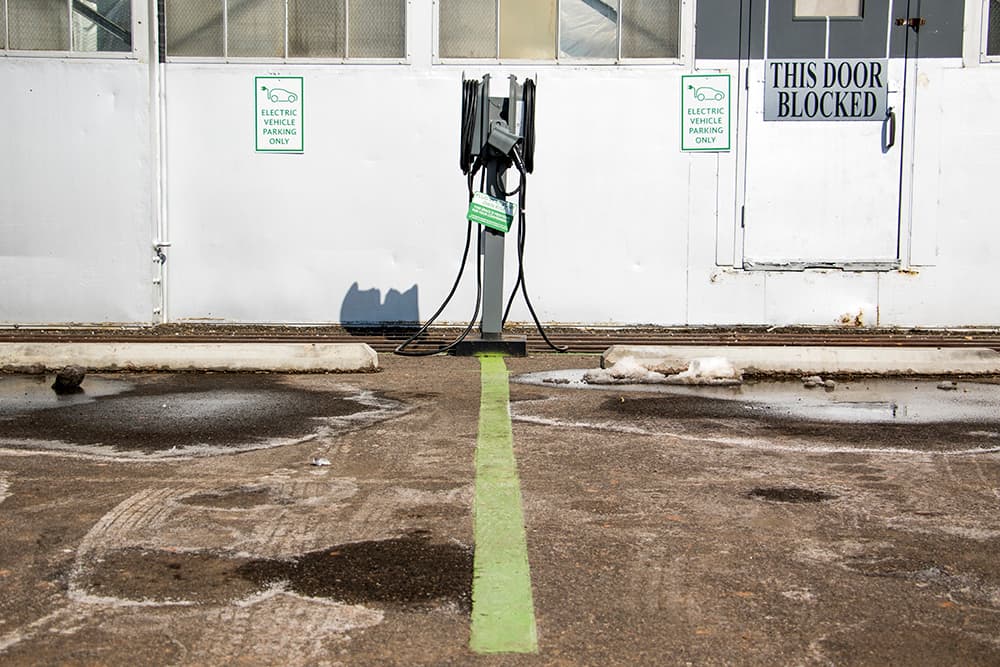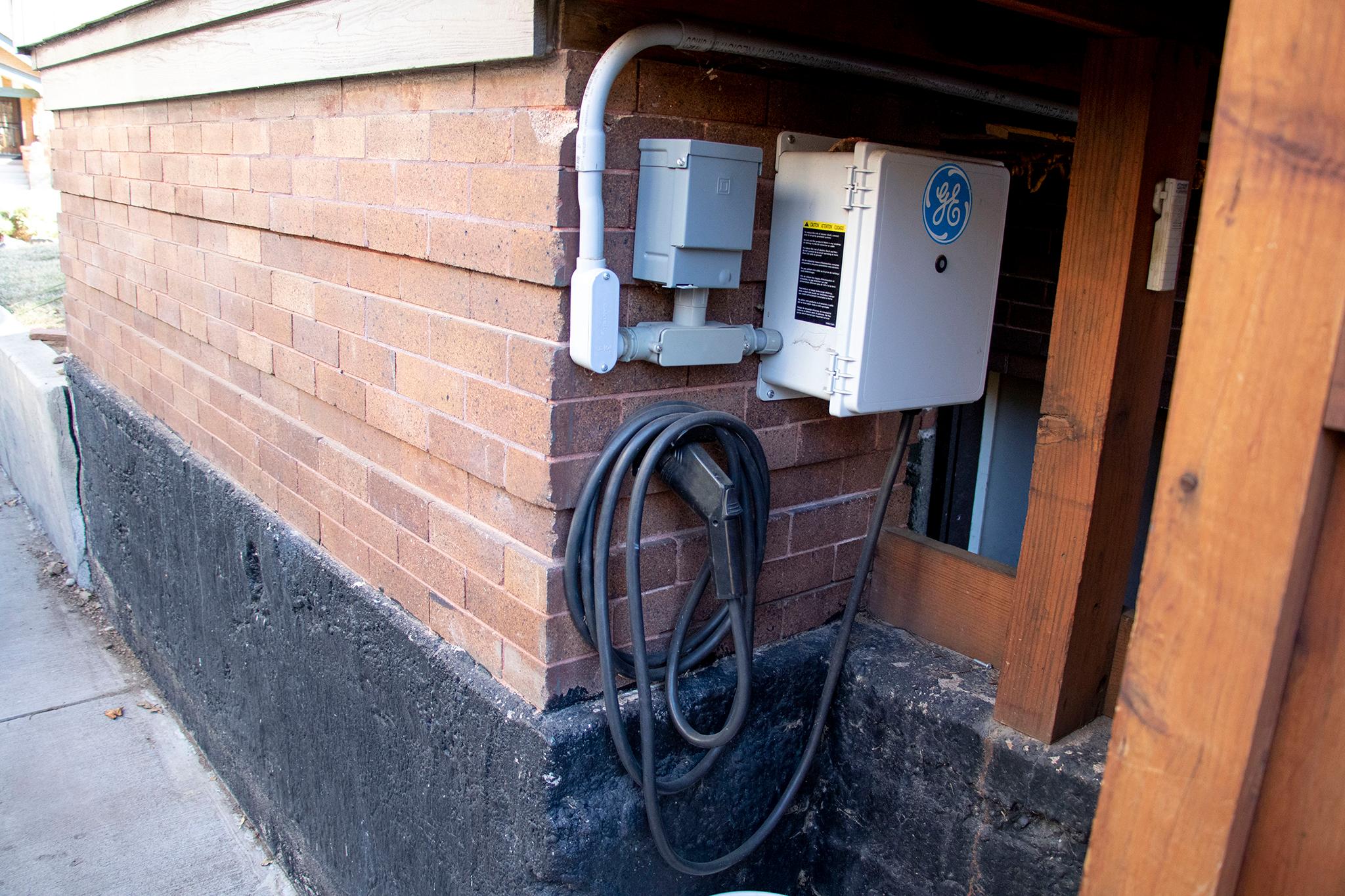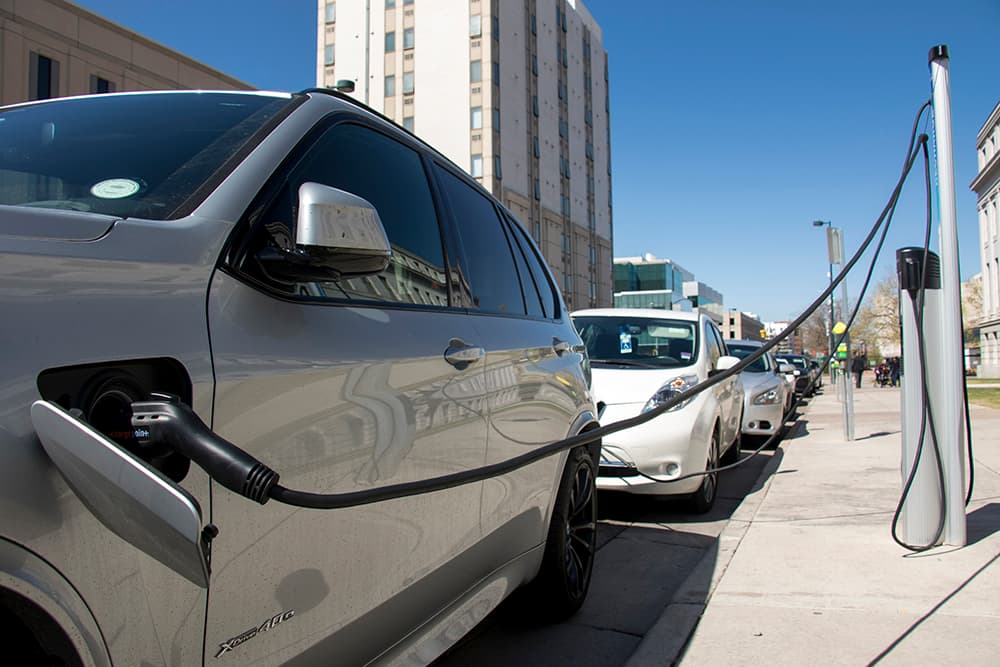Denver now has a roadmap for how to expand electric vehicle ownership in the city, but it's clear that reaching its destination means traveling a long, hard road.
To help Denver fight climate change, the city released its "Denver Electric Vehicle Action Plan" earlier this month. While it includes a lot of concrete to-dos like installing charging ports, incentivizing electric vehicle purchases and educating the public, pulling those things off will require money and partnerships that aren't yet in place.
First things first: Electric vehicles are far from a panacea for fixing the transportation sector, the second-biggest contributor to greenhouse gases behind residential and commercial buildings, said Mike Salisbury, transportation energy lead for the Denver Office of Climate Action, Sustainability and Resilience.
Walking, biking and transit improvements must be "our first solution to a more sustainable transportation system," Salisbury said. But electric vehicles -- we'll call them EVs from now on -- are a piece of the puzzle.
By 2025, Denver's government wants to see electric vehicles make up 15 percent of all vehicles registered in the city, with that share doubling by 2030, the plan states. About 4,000 EVs were registered in the city at the end of last year. Denverites must register 96,000 more to meet the city's 2025 goal, Salisbury said.

"I think it's very aggressive," said Salisbury, whose team worked with more than 30 government, nonprofit and corporate partners on the plan. "I think you look at adoption curves and what we need to help meet our climate targets, we kind of need that hockey stick curve. We need to start going up the hockey stick every year. Every year we only increase at a kind of reasonable rate, it makes it harder to meet that goal."
At its current pace, Denver will see about 83,600 EVs, or 10 percent of all registered vehicles, in the city by 2030.
Asking people to buy electric cars without charging stations is like asking people to drive without roads. Denver has a plan for that, but it relies heavily on cooperation from the private sector.
At 400, the city has quite a few public charging ports. Problem is, that number needs to rise to 4,000 by 2030, according to the EV blueprint, and funding priorities don't include 3,600 Denver-owned stations.
The city can and does install them on public property around the city, but Salisbury said apartment buildings, office buildings and stores will be key partners in providing charging infrastructure. If they install a plug-in, business owners might keep customers shopping longer while their car charges, Salisbury said, and keep them coming back.
Sarah Garfinkle considered buying an electric vehicle but ultimately settled on a Suburu. The lack of urban charging stations helped send her down the road to a combustible engine.
"My apartment complex doesn't have one, so I would need to go down Colorado (Boulevard) just to charge my vehicle," she told Denverite.


Building partnerships with business owners is a key next step in Denver's journey, Salisbury said.
"I think they can be a real economic benefit for an apartment owner," he said. "With resident retention, it's like an amenity that's going to help people stay in your building and not have as much turnover. I think that they will see the value in."
Privately owned stations typically cost drivers money while Denver's publicly owned stations are still free, in order to incentivize drivers. The city wants to incentivize at-home charging stations, but while it has resources to develop retrofitting and permitting guides for residents and landlords, it has not prioritized financial incentives for their installation.
Denver's plan recommends cash incentives to lure consumers away from combustible engines. Denver's plan also says the city lacks the money or partnerships to provide them.
Colorado and Denver have a few things on their side, but they come with crucial caveats. For example, state lawmakers passed a law in 2016 that forces car dealers to more than double their EV sales by 2030 -- from 2.6 percent to 6.2 percent of statewide sales. A statewide tax credit for EV buyers once worth $5,000 will be worth half that next year. Similar federal incentives have a cap and are becoming rarer every day.
The action plan recommends a tiered approach to rebates and incentives for electric vehicles "to provide greater support for low-income residents, with options to opt for alternate modes (e-bike or transit pass incentives)." But this item also comes with the tag of "resources and partners needed."
A timeline shows incentives coming around in mid-2021.
Maybe the upfront and long-term cost of EVs is incentive enough?
"It's just fantastic peace of mind," said Nathan Huttner, a West Highland resident who is on his second EV. "Other than having your tires rotated, it just doesn't need service. No other kind of routine maintenance is really required. So that's super nice. I haven't been to a dealer for service in several years."
Between rebates, tax credits and the money saved on gas and repairs (EVs have a much simpler setup and require less maintenance, according to AAA), new cars with combustion engines can make less economic sense than new cars that run on electricity.
Denver's action plan says EVs offer long-term cost benefits. A study from AAA says EVs can cost slightly more to own and operate than some traditional cars and less than others, depending on the make and model. However, that study does not include government rebates or tax credits.
With incentives, Salisbury said a Nissan Leaf, for instance, can cost $12,000 less than its sticker price.
"That gets it down to $20,000 and less for a new car, which is very affordable," Salisbury said. "Fair or not, people think of electric vehicles and think of Teslas and those can be more expensive -- the Model 3s are more affordable -- but there are a lot of other great, more affordable options that are out there for people."
Communicating cost savings and other benefits is a step Denver is ready to take right now. The city will market the idea to Denverites from diverse backgrounds, the plan states, including its own employees. The government will also brand its own fleet of EVs, which totals 116 right now and is on its way to 200.
For Denverites who want to weekend in the mountains, a Leaf or a Prius won't always cut it.
Being in far-flung areas without four-wheel drive or charging stations are common anxieties among potential EV buyers. While Colorado has plans to expand its charging stations, those ideas aren't the same as infrastructure and don't calm the nerves of someone looking to buy now.
"If I were to go to the mountains or a rural area, something I frequently did when working in oil, I'd be out of luck if my vehicle ran out of power," said Garfinkle, who forwent an EV for a Suburu. "In my opinion, in Denver EVs are great as a secondary vehicle but wildly impractical if it's your only car unless you plan on staying in city confines all the time."
"Range anxiety" dies down after people go electric, an AAA survey found. The lack of all-wheel-drive vehicles is another story. While those models exist, they aren't exactly common in Colorado, Salisbury said. He thinks the state's mandate on car dealers will expand the availability of SUVs and other mountain-ready cars.
"That's the trip that people in Denver make," he said. "Having more models available is something I think we want to keep on trying to figure out how we can encourage manufacturers and the dealers to bring more models to Denver and Colorado."
Just imagine, Salisbury said, a Suburu Outback... but with an electric motor!













